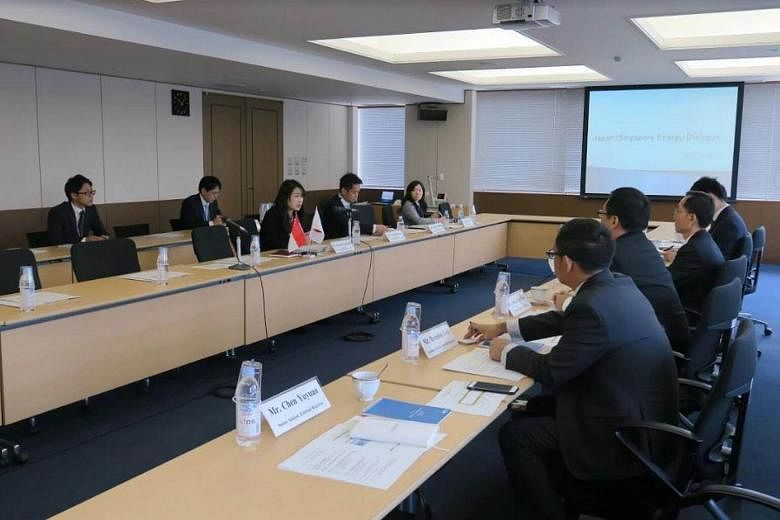TOKYO - Japan and Singapore on Monday (April 3) held their first formal bilateral talks on deepening energy ties at a time of flux in the market.
Mr Ng Wai Choong, chief executive of the Energy Market Authority (EMA), said in his opening remarks that both countries, being energy resource deficient, face common challenges.
These lie in "trying to ensure that our energy supply will be secure, cost competitive as well as environmentally sustainable", Mr Ng said at the dialogue in Tokyo, adding that it is "not easy to balance the three objectives".
"To be able to do it well, we need to have careful planning and very sound policies and regulations that will leverage on market supply efficiencies, and at the same time, capitalise on technology innovations," he said.
Ms Misako Takahashi, who heads the economic security division at Japan's Ministry of Foreign Affairs, noted that the global energy market is in the midst of paradigm shifts.
The first change, she said, lies in how future global energy demand will increasingly be driven by emerging economies, in particular those in Asia, with India and Asean soon to take over China's mantle in leading the energy demand boom.
"With Asia as a whole turning into a huge energy importing region, energy security and vulnerability will be felt more acutely,"Ms Takahashi said. "This will be a key question for both of us as we rely heavily on energy imports."
Another shift lies in the changing roles of traditional energy exporters and importers, she added. She cited the example of the United States, which was formerly a major energy importer but is now a major exporter with the shale gas revolution.
"The first US liquefied natural gas cargo arrived in Japan this January, and the volume is expected to increase in the coming years," she said. "Other non-traditional energy exporters like Brazil and Africa are up and coming as well."
This means that Japan and Singapore will increasingly need to lobby for a "more transparent and flexible energy market" that will be advantageous to consumers, she added.
"As responsible energy consumers and importers, our shared interests and ideas should contribute to create better energy security resilience and a better functioning energy market in the region," she said.



